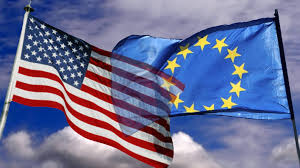TTIP has failed for German Minister

The TTIP can be said definitively failed. In the opinion of Sigmar Gabriel, vice chancellor and Economy Minister German, "talks with the US are in fact failed because we Europeans, of course, must not succumb to American demands: nothing is moving forward ".
In an interview on German television ZDF, Gabriel added that "the negotiations with the US have failed de facto because we Europeans do not want to subject us to the US demands."
The Vice-Chancellor has revealed that during the round of negotiations at the beginning of the summer it was not found understanding on any of the 27 chapters under discussion. Washington would then resented the Ceta agreement between Brussels and Canada, because it contains several aspects deemed unacceptable by the US.
The TTIP is the Treaty for the liberalization of trade between the two largest economic blocs in the world, which according to its promoters would add EUR 119 billion to the GDP of Europe, 95 bn US and 100 bn to that of the rest of the globe. Negotiations have so far been conducted in secret, but some documents obtained by Greenpeace revealed the most disputed points. Europeans, among other things, accuse the Americans of wanting to impose their standards on agriculture, health, environment, for example by eliminating all state support, lowering the protections from pesticides use, favoring GM foods. Big multinationals, then, would have the right to sue governments for challenging their rules, thus circumventing the laws in defense of their interests.
President Barack Obama and Chancellor Merkel have always supported the TTIP, believing that it would bring economic benefits for all; however, the length of the negotiations, too, and the change of political climate (See Brexit), have led to drift to the Treaty.
In the interview Gabriel has shown more optimistic on Canada-EU free trade agreement, which he called "a big step forward," adding that he would fight for its ratification. The agreement known as Ceta was formally concluded in 2014 and requires the approval of 28 EU member states and the European Parliament.

